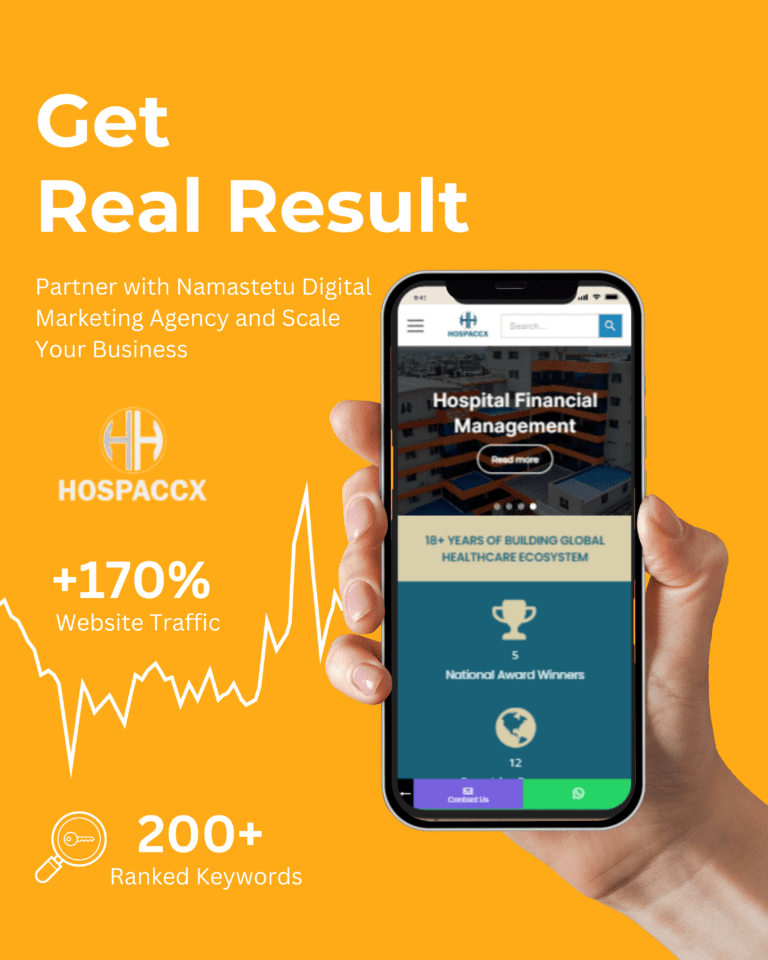In our current digital era, having a robust online presence is crucial for businesses of all sizes. For those looking to sell products or services online, an ecommerce website is not just a luxury—it’s a necessity. But what exactly goes into creating a successful ecommerce platform? Let’s dive deep into the world of ecommerce website development and explore the essential components that make it tick.
The Foundation: Understanding Ecommerce Website Development
Before we delve into the specifics, it’s important to grasp what ecommerce website development entails. At its core, it’s the process of creating an online store that allows businesses to sell products or services directly to consumers over the internet. This involves a complex interplay of various technologies, design principles, and marketing strategies.
The Key Players: Website Developers and Website Development Companies
Creating an ecommerce website isn’t a one-person job. It typically involves a team of skilled professionals, including:
- Front-end developers: These experts focus on the client-side of the website, ensuring that the user interface is attractive and functional.
- Back-end developers: They work on the server-side, handling databases, server logic, and integration with various systems.
- Full-stack developers: These versatile professionals are proficient in both front-end and back-end development.
- Web designers: They create the visual elements of the website, focusing on aesthetics and user experience.
- Project managers: They oversee the entire development process, ensuring smooth collaboration and timely delivery.
Many businesses choose to work with a website development company or a web development company to access this range of expertise under one roof.
Essential Components of Ecommerce Website Development
1. Front-End Technologies
The front-end is what users see and interact with directly. It’s crucial for creating a positive first impression and ensuring a smooth user experience. Key front-end technologies include:
- HTML5
- CSS3
- JavaScript
A skilled front-end developer utilizes these technologies to create responsive, interactive, and visually appealing interfaces.
2. User Experience Design
User experience (UX) is paramount in ecommerce. A well-designed UX can significantly increase conversion rates and customer satisfaction. This involves:
- Intuitive navigation
- Clear product categorization
- Streamlined checkout process
- Personalized user journeys
3. Responsive Web Design
With the increasing use of mobile devices for online shopping, responsive web design is no longer optional. Your ecommerce site must adapt seamlessly to various screen sizes and devices to provide a consistent user experience.
4. JavaScript Frameworks
Modern ecommerce sites often leverage JavaScript frameworks like React, Angular, or Vue.js to create dynamic and interactive user interfaces. These frameworks enable developers to build complex applications with reusable components, improving both development efficiency and user experience.
5. Server-Side Development
The back-end of an ecommerce site handles crucial functions like:
- Processing orders
- Managing inventory
- Handling payments
- Storing customer data
Popular server-side technologies include PHP, Ruby on Rails, Node.js, and Python. A proficient back-end developer is essential for implementing these technologies effectively.
6. API Integration
APIs (Application Programming Interfaces) allow your ecommerce site to communicate with external services and systems. Common integrations include:
- Payment gateways
- Shipping providers
- Inventory management systems
- CRM platforms
7. Full-Stack Development
Full-stack development involves working with both front-end and back-end technologies. Full-stack developers have a comprehensive understanding of the entire web development process, making them valuable assets in ecommerce projects.
8. Database Management
Ecommerce sites handle vast amounts of data, including product information, customer details, and transaction records. Efficient database management is crucial for:
- Ensuring data integrity
- Enabling quick data retrieval
- Scaling the database as the business grows
9. Web Performance Optimization
In ecommerce, every second counts. Slow-loading pages can lead to lost sales and poor search engine rankings. Web performance optimization techniques include:
- Image optimization
- Minification of CSS and JavaScript
- Implementing content delivery networks (CDNs)
- Browser caching
10. E-Commerce Solutions
Many businesses opt for existing e-commerce solutions like Shopify, WooCommerce, or Magento. These platforms provide a solid foundation for building online stores, offering features like:
- Product Catalog Management
- Shopping cart functionality
- Secure payment processing
- Order management
11. Content Management Systems
A robust Content Management System (CMS) is essential for managing and updating your ecommerce site’s content. Popular options include:
- WordPress
- Drupal
- Joomla
These systems allow non-technical users to easily update product information, blog posts, and other content without developer intervention.
12. SEO Best Practices
Search Engine Optimization (SEO) is crucial for driving organic traffic to your ecommerce site. Key SEO considerations include:
- Keyword optimization
- Meta tags and descriptions
- URL structure
- Site speed optimization
- Mobile-friendliness
13. Web Development Trends
Staying current with web development trends is essential for creating a modern, competitive ecommerce site. Current trends include:
- Progressive Web Apps (PWAs)
- Artificial Intelligence and chatbots
- Voice search optimization
- Augmented Reality (AR) for product visualization
14. UX/UI Design Principles
Effective UX/UI design is critical for creating an engaging and intuitive shopping experience. Key principles include:
- Consistency in design elements
- Clear visual hierarchy
- Minimalist design
- Effective use of white space
15. Cross-Browser Compatibility
Your ecommerce site should function flawlessly across all major web browsers. This requires thorough testing and optimization to ensure a consistent experience for all users.
16. Mobile-First Design
With the majority of online shopping now happening on mobile devices, a mobile-first design approach is crucial. This involves designing for mobile devices first and then scaling up for larger screens.
17. Web Security Practices
Ecommerce sites handle sensitive customer data and financial transactions, making security paramount. Essential security measures include:
- SSL certificates
- PCI DSS compliance
- Regular security audits
- Secure payment gateways
18. Custom Web Development
While pre-built solutions can be a good starting point, many businesses require custom web development to meet their specific needs. This allows for:
- Unique features and functionality
- Seamless integration with existing systems
- Greater scalability and flexibility
19. Web Design Tools
Modern web design tools like Adobe XD, Sketch, and Figma enable designers to create stunning, functional designs and prototypes. These tools facilitate collaboration between designers and developers, streamlining the development process.
20.Digital Marketing Integration
An ecommerce site should be built with digital marketing in mind. This includes:
- Easy integration with analytics tools
- Support for email marketing campaigns
- Social media integration
- Remarketing capabilities
The Cost Factor: Website Development Costs
The cost of building a website, particularly an ecommerce site, can vary widely depending on factors such as:
- Complexity of the project
- Choice between custom development and pre-built solutions
- Number of products and features
- Level of customization required
- Ongoing maintenance and support needs
While it’s challenging to provide an exact figure, ecommerce website development costs can range from a few thousand dollars for a basic site to hundreds of thousands for a large, custom-built platform.
Conclusion:
Your Path to Ecommerce Success
Creating a successful ecommerce website requires a comprehensive approach, combining technical expertise, design skills, and marketing savvy. Whether you’re a small business owner looking to establish your online presence or a large corporation aiming to dominate the digital marketplace, understanding the key components of ecommerce website development is crucial.
At Namastetu India, we bring together all these elements to create stunning, functional, and high-performing ecommerce websites. Our team of expert website developers, designers, and digital marketers work collaboratively to bring your online vision to life.
Ready to take your business to the next level with a cutting-edge ecommerce website? Contact Namastetu India today for a free consultation. Let us help you navigate the complex world of ecommerce website development and create an online store that drives results. Don’t let your competition leave you behind in the digital race—partner with Namastetu India and start your journey to ecommerce success now!
FAQs About What is Required for Ecommerce Website Development?
How long does it typically take to develop an ecommerce website?
The timeline can vary greatly depending on the project’s complexity. A basic ecommerce site might take 1-2 months, while a large, custom-built platform could take 6 months or more.
Is it better to use a pre-built ecommerce platform or opt for custom development?
This depends on your specific needs. Pre-built platforms offer quicker setup and lower initial costs, while custom development provides greater flexibility and scalability.
How important is mobile optimization for an ecommerce website?
Extremely important. With over 50% of online shopping now done on mobile devices, a mobile-optimized site is essential for success.
What are some key features every ecommerce website should have?
Essential features include a user-friendly product catalog, secure payment processing, a streamlined checkout process, and responsive customer support options.
How can I ensure my ecommerce website is secure?
Implement SSL certificates, use secure payment gateways, regularly update your software, and conduct regular security audits.




